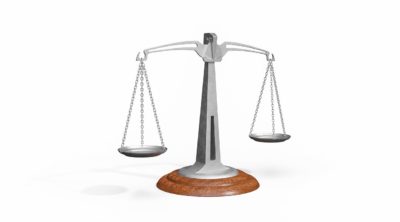“Beloved, never avenge yourselves, but leave it to the wrath of God, for it is written, ‘Vengeance is mine, I will repay, says the Lord.’” -Romans 12:19
There is great reason here for Paul’s encouragement to us not to repay evil for evil. To help us further understand the importance of this, let’s look at the great plea and cry of the chief priests in Mark 15:8-14: And the crowd came up and began to ask Pilate to do as he usually did for them. And he answered them, saying, “Do you want me to release for you the King of the Jews? For he perceived that it was out of envy that the chief priests had delivered him up. But the chief priests stirred up the crowd to have him release for them Barabbas instead. And Pilate again said to them, “Then what shall I do with the man you call the King of the Jews?” And they cried out again, “Crucify him.” And Pilate said to them, “Why? What evil has he done?” But they shouted all the more, “Crucify him.” Here we see the great exchange, the perfect God-Man, for the murderer, Barabbas. I believe there are two principles here for us to understand:
- Our hatred of men often twists and tarnishes all reasoning and logic. Disregarding their own laws about what is required for guilt to be established (Deuteronomy 19:15-21), they could find no consistent testimony for His death (Mark 14:55), yet their thirst for blood remained despite their many failed attempts to find fault. In response to Pilate’s question, “Why, what evil has He done?” they could only utter two words, “Crucify Him.” Their envy raged within them causing them to make the call—Barabbas for the Christ. Forget what we have been taught. Forget waiting. Forget prayer. Forget mercy, give us blood. This is the moment we proved more than ever our blindness to truth.
Our Lord is not ruled by feelings and impulses such as us—His judgements are complete, omniscient, and righteous (Romans 9:14). But when we try to take matters of judgment into our own hands, we often choose fruit over faith (Genesis 3:6), Barabbas over Christ. This enforces the truth that we need a Savior who can transform us deep and hard, just as the hammer that drove the nails into our Redeemer’s hands. Left to ourselves, we don’t know what true justice looks like, but we have shown we are experts at committing injustices. God give us patient humble hearts to wait upon You.
- The people did not care for Barabbas, he was merely used to carry out the purpose to which they had set their minds on. They did not care for his release, so much as they cared for Christ’s capture. The collateral damage that is caused from our carrying out justice destroys souls. No longer was Barabbas seen as a person to them, but now he was seen as an opportunity. In this instance, human life was degraded, used merely as a tool to carry out man’s sinful desires.
This passage is humbling from the outside looking in, because if we are honest with ourselves, we realize that if we were given the choice, we most likely would have been alongside the crowd cheering, “Crucify Him!” When we make ourselves the judge, jury, and executioner of another person’s sins, most of the time it gets us into trouble.
This does not mean we are not called by God to show His justice here on earth (Matthew 23:23), rather we are to render true judgments (Zechariah 7:9), the judgments of Christ’s kingdom, carrying out the will of the Father rather than our own. And in every moment and every circumstance we see injustices being carried out, we first need to slowly step back, seeking His wisdom and heart, making sure to protect ourselves from thinking we are wise in our own sight (Romans 12:16). We must remember our hearts often deceive us (Jeremiah 17:9), and because of that it’s possible that our man-centered concept of justice looks a lot different than the pure, holy judgments of the Father. At the end of the day, we may be wrong in the way that we pursue justice, but we are never wrong to set aside our desire for judgment (James 2:13), not returning offense for offense, but entrusting ourselves to the One who judges rightly (1 Peter 2:23). It’s a beautiful thing to trust Him in this, and even when we fail God’s purpose still stands: He turns the ashes for beauty, our misjudgments (“Crucify Him”!) for our redemption, extending mercy and help for our pitiful efforts, leaving us to boast in His righteousness alone. The greatest example of this is seen in Jesus. Our crucified King was led to the cross by hands confident that He deserved His condemnation, but while hanging there, receiving in Himself the penalty for our sins, the righteous judgment of the Father was poured out on His perfectly justified Son, correcting the very wrong that put Him there, and making a way for us to make the right choice: mercy over judgment, forgiveness over bitterness, Jesus over Barabbas.
